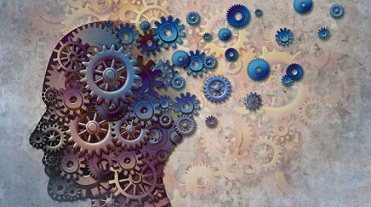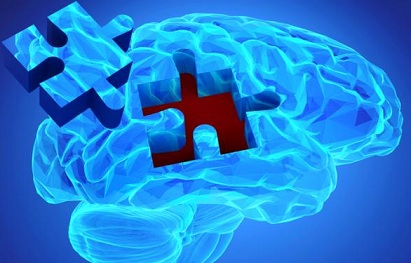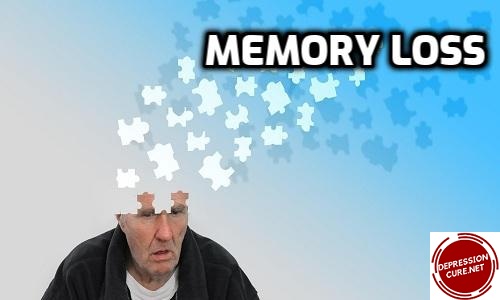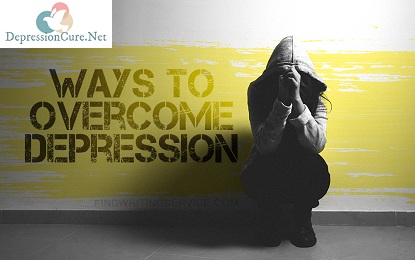What is memory loss?
Memory can be defined as the remembrance of experiences, thoughts, feelings, sensations, fantasies, and knowledge. (memory loss)
Problems related to memory can affect a few or all of these processes. Some memory problems develop slowly, while some occur suddenly. Some types of issues are cured, and in other matters, memory gradually worsens permanently.?
Our mind has to remember important facts, plans, words, and other things. To accomplish all this, the brain stores all the information and then get it when we need it.
To some extent, it is common to have problems with the weakening of the memory, whereas there is a difference between memory weakness related to Alzheimer’s disease and related disorders and general memory weakness. Many times during treatment, our consciousness becomes weak.
If you are having memory problems, you should consult your doctor immediately for diagnosis and proper care.
Memory Loss Symptoms?

What causes memory loss?
Memory problems can vary in intensity and cause a variety of symptoms. The following are common symptoms related to memory -?
- Confusion.
- Depression.
- Difficulty in day-to-day tasks, such as balancing checkbooks, keeping appointments, or preparing meals.
- Forgetting people, talk, and events that were previously well known.
- Lost and lost items.
- Difficulty following guidelines or having problems performing a familiar task.
- Irritability.
- Language difficulties, such as difficulty remembering words or a word.
- Neurological disorders.
- Poor performance in memory tests.
- Repeating stories and questions.

Click Here to Read:-60 Interesting Depression Facts
Memory Loss Causes

What causes memory loss?
There may be following reasons for losing memory
- Vitamin B-12 deficiency.
- Failure to sleep
- Use of alcohol or drugs and certain drugs.
- Due to unconsciousness from recent surgery.
- Cancer treatments, such as chemotherapy and radiation or bone marrow transplantation.
- Head injury.
- Lack of oxygen in the brain.
- Some types of seizures.
- Brain tumor or infection.
- Brain surgery or cardiac bypass surgery.
- Mental disorders like depression, bipolar disorder, schizophrenia (psychosis), and dissociative disorder.
- Emotional pain
- Thyroid.
- Electrotherapy.
- Transient Ischemic Attack (TIA).
- Diseases such as Huntington’s disease, multiple sclerosis (MS), or Parkinson’s disease.
- Migraine.
Some of the conditions can be treated, and in some cases, memory can be corrected.?
What are the risk factors for memory loss?

Memory problems may have the following risk factors
Blood flow
High blood pressure, stroke, heart disease, cholesterol problems, impotence, lack of exercise (less than 2-3 times a week) can increase the risk of memory problems.?
Age
The risk of memory problems increases with age (beyond 50 years).
Inflammation – gum disease, high levels of high homocysteine ??, or C-reactive protein (CRP) (C-reactive protein) in the blood or low levels of omega-3 fatty acids increase the risk of memory problems.?
Genetics
A family member who has Alzheimer’s disease, some dementia, or Parkinson’s disease increases your risk of memory problems.
Head injury
A history of head injuries or injuries caused by playing a game that comes in contact with another person increases your risk of recall problems.
Click Here To Read: How To Quit Smoking
Toxins
Consumption of alcohol or drugs, exposure to toxins present in the environment or personal products, and chemotherapy, etc. increase the risk of memory problems.?
Mental health
Stress, depression, post-traumatic stress disorder, bipolar disorder, schizophrenia, etc. problems increase the risk of memory problems.
Immunity/infection problems
Chronic fatigue syndrome, autoimmune issues such as rheumatoid arthritis or multiple sclerosis, or any untreated infection can lead to memory problems.
Neurohormone deficiency
Low levels of thyroid, high levels of testosterone (in both men and women), estrogen and progesterone (in women), DHEA (dehydroepiandrosterone), cholesterol, increase the risk of memory problems.
Sugar
Sugar and obesity may also increase the risk of memory problems.
Sleep problems
Chronic insomnia and sleep apnea, etc. problems may increase the risk of losing memory.
Prevention of Memory Loss?

How does avoidance of memory loss happen?
Studies shows that you can reduce your risk of developing memory problems in the following ways –
- Use seat belts, helmets, and other safety techniques at the appropriate time to avoid head injuries.
- If you suspect a stroke, cerebral artery eruption, or brain infection, contact a doctor immediately.
- Do not smoke
- Do not consume alcohol or drugs.
- Get enough sleep
- Eat healthy food that is rich in omega-3 fatty acids and vegetables.
- Follow the doctor’s advice to reduce cholesterol and blood pressure.?
- Exercise regularly.
- Do brain-challenging activities (such as puzzle puzzles and learn new languages).
- Keep in touch with friends and interact with people as per your interest. Social interaction reduces stress and helps reduce depression.
Click Here To Read: 25 Ways To Simplify Your Life
Diagnosis of memory loss

How is memory loss diagnosed?
A medical test for the diagnosis of memory loss involves a complete medical history. Take a family member or a trusted friend to help you.
Your doctor will ask you a few various questions about your memory problems. They may ask some questions to test your memory.
Your doctor will do a full physical examination of you and also ask about other physical symptoms.
Depending on the results of the test, your doctor may refer you to a specialist, such as a neurologist or mental health professional. Additionally, tests may include the following –
- Cognitive tests to check your thinking ability.
- Blood tests to check for various conditions that include vitamin B-12 deficiency & thyroid disease.
- Imaging tests such as an MRI or CT scan.
- Electroencephalogram test to measure the electrical activity of the brain.
- Neurological angiography, an X-ray that helps to see how blood is flowing into the brain.
Diagnosing this problem is an important step. Many problems caused by memory can be cured if diagnosed on time.
Memory Loss Treatment

How is memory loss treated?
Treatment of memory loss depends on its cause. In many cases, it can be cured by treatment. For example, memory loss from medications can be cured by a change in medication.
Loss of memory due to nutritional deficiency can be cured with nutritional supplementation.
Treating depression can treat memory loss caused by it.
In some of the cases, such as after a stroke, therapy may cause people to miss certain tasks like walking or tying shoes, while in others, the memory may improve over time.
Treatment can also be done for specific conditions related to memory loss. For example, medicines are available to treat memory problems related to Alzheimer’s disease.
Note: Depression Cure does not provide any type of medical advice, diagnosis, or treatment.





